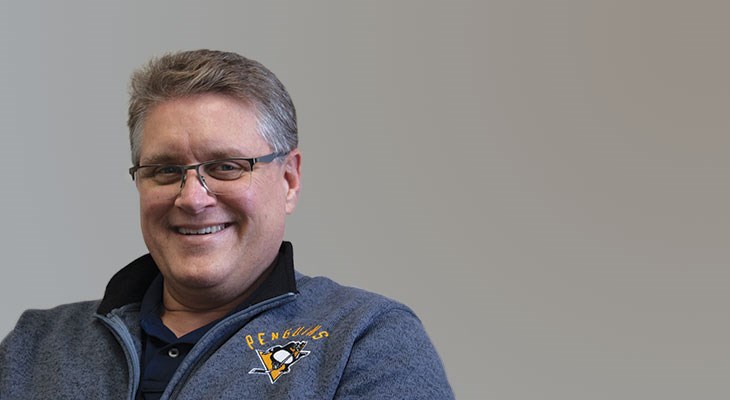When Kiva Han Coffee and Crazy Mocha Coffee joined forces last year under the umbrella of Ed’s Beans Inc., it made perfect strategic sense.
Roaster and distributor Kiva Han wanted U.S. retail operations — it only had outlets in the Middle East — and its customer Crazy Mocha had grown large enough with 29 locations that it could support in-house roasting.
But between lining up financing and bringing together two cultures, the process wasn’t as quick or straightforward as President Ed Wethli expected.
“To do any deal like this, you’ve got to be positive,” Wethli says. “And then you’ve got to pull the right people into this. You’ve got to the right professionals involved with you.
“It’s a lot about attitude,” he adds. “You’ve got to believe that it’s going to work.”
Wethli and Jennifer Allison, Kiva Han’s general counsel and director of human resources, share how the two coffee companies came together in March 2018 in the hopes of making one plus one equal three.
Lining everything up
Wethli started Kiva Han in 1993 as a roaster that distributes wholesale products to customers. The business experienced steady growth. It struck a licensing deal five years ago that led to Kiva Han retail outlets in Saudi Arabia. With 15 stores set to open by the end of 2019, and plans for more in other Arabic-speaking countries, the explosive growth helped Wethli recognize the need for retail stores in the U.S.
Crazy Mocha experienced its own steady growth. From the single store that founder Ken Zeff bought in 2000, the chain had grown to 29 shops in the ensuing years.
So Wethli asked Zeff — a Kiva Han customer for 15 years — for some advice about retail operations. The casual conversation took on a different tone when Zeff responded, “What if you bought me?”
While the two companies had similar revenue, Crazy Mocha was a larger operation. It took roughly a year to line everything up.
“Kiva Han had never raised capital on the scale that they were trying to do to finance the Crazy Mocha acquisition, and that was a real learning process, just how the pieces come together,” Allison says.
They originally thought the deal would be done in three months because everyone involved was motivated, Allison says.
“We couldn’t envision the specific obstacles that we’d encounter,” she says. “But I think if we had to do it over again, we’d have said at the outset, ‘Look, there are going to be obstacles — build that into your timeline, build that into your budget.’”
Wethli was familiar with raising growth capital, primarily through bank lending. But raising funds for the Crazy Mocha acquisition became a full-time job.
“As a company, we’re excellent at the details in our record keeping and our book keeping,” he says. “I think it would be tough for somebody who doesn’t have things buttoned up.”
Wethli looked at a variety funding vehicles, including mezzanine financing. But after working with his deal advisers and meeting with a handful of banks — and learning a lot along the way that he plans to implement in his next acquisition — he ultimately ended up working with his own bank.
Staying flexible
Once the deal closed, Wethli turned his attention to integration. Zeff had a one-year contract to help, which Wethli says was critical.
“It’s been a good process, working with him, and I think at this point, we’ve added a lot of components,” he says. “We’ve put new point of sale system in place. We’ve added a loyalty program for the stores. We’re doing marketing that he hadn’t done. There’s a lot of things we’re bringing to this.”
Allison says the cultures between the companies were very distinct, which meant there were so many points where it could have gone wrong. Instead, everyone did their best to give people the benefit of the doubt and learn from each other.
“It required a lot of humility on everyone’s part to realize, just because I’ve handled my piece this way historically, doesn’t mean that going forward we don’t need to be flexible and open,” she says.
Wethli says an existing relationship between the two teams helped but, looking back, he hadn’t thought much about the cultures before the acquisition. So, it was a process to bring the two together.
Crazy Mocha has great, passionate employees, but each location was very independent, he says. Kiva Han could tie that up and bring it together, adding efficiency and processes. It’s been able to give more to the employees like offering benefits to some of the staff, which kept the turnover down throughout the process.
“Everyone had to be accommodating in some way,” Allison says. “It could have really held us back.”
A year after the acquisition, Wethli is glad to have the deal and most of the integration under the company’s belt.
“There’s still some of putting one and one together, but we’re definitely seeing growth,” he says. “And that’s the one thing about Pittsburgh. I grew up here in Western Pennsylvania, and Pittsburghers love Pittsburgh products. So, people love Crazy Mocha.”
The next step is to grow the brand, most likely through franchising. There’s already one store outside New York City that could be a base for growth in northern New Jersey. The challenge will be keeping the hyper-local, off-beat personality that makes Crazy Mocha popular in Pittsburgh.
It may also make sense to bring Kiva Han stores to the U.S. in the future. Unlike the laidback, relaxed Crazy Mocha, Kiva Han provides an upscale, elevated experience.
Wethli also will continue to look for acquisition opportunities down the road.
“If there was a chain that made sense within a geographic footprint close to where we’re at here in Pittsburgh, we would look at the opportunity,” he says.




